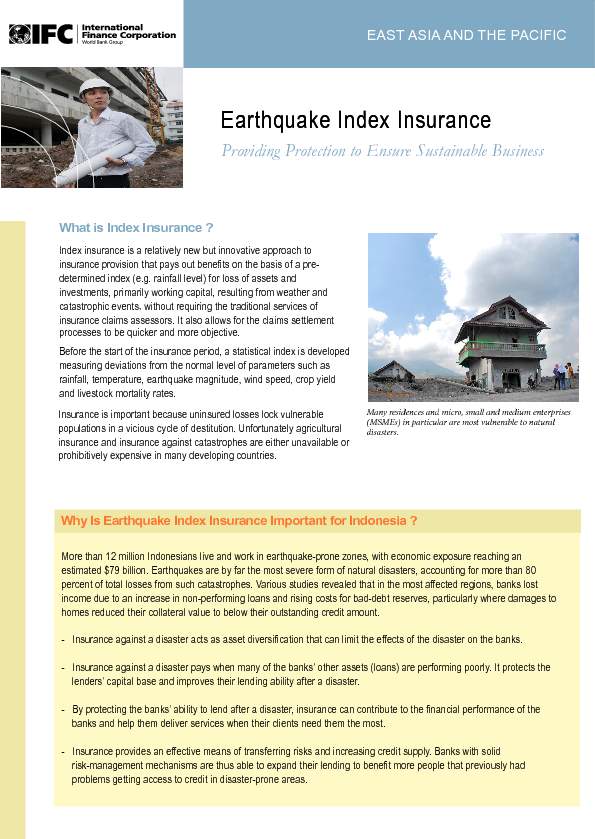
Index insurance is a relatively new but innovative approach to insurance provision that pays out benefits on the basis of a pre determined index (e.g. rainfall level) for loss of assets and investments, primarily working capital, resulting from weather and catastrophic events, without requiring the traditional services of insurance claims assessors. It also allows for the claims settlement processes to be quicker and more objective. Before the start of the insurance period, a statistical index is developed measuring deviations from the normal level of parameters such as rainfall, temperature
